Unveiling the World's Top Energy Drink: A Comprehensive Guide
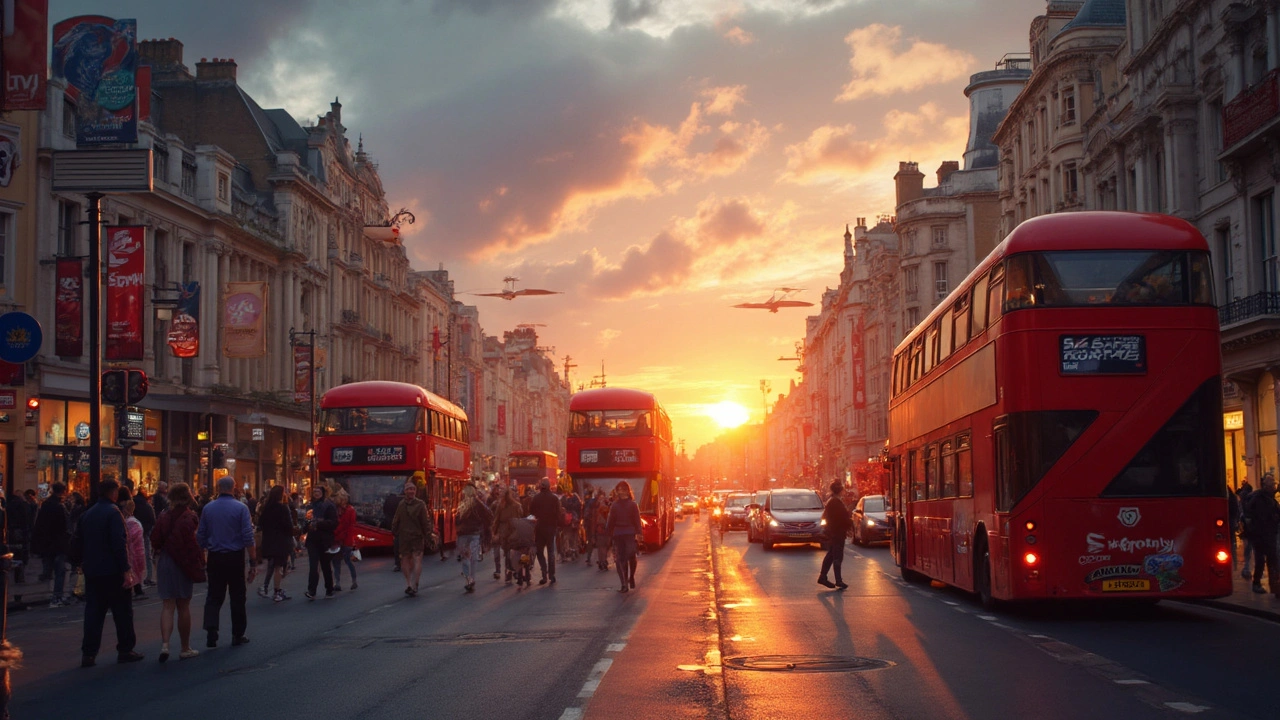
The Rise of Energy Drinks: An Electrifying Journey
Let's talk energy. Not the kind you need to drag yourself out of bed, but the bubbly, electrifying one that comes in a can. Energy drinks have become a staple in our fast-paced lives, offering that much-needed boost when the going gets tough. But have you ever wondered how they came to be the global sensation they are today?
It all started back in the 1960s when a Taiwanese company first introduced a tonic that married taste with a jolt of alertness. However, the gateway to the Western market opened in the 1980s when Red Bull made its debut, capturing imaginations and energizing a generation. Their brilliant marketing strategy, claiming it 'gives you wings,' was just the spark needed to set off an explosion of interest worldwide. Today, the energy drink market buzzes with over 500 brands, each offering its unique twist on the formula. From taurine to guarana, and hefty doses of caffeine, these drinks have become synonymous with endurance athletes, late-night partygoers, and the ever-busy worker.
Energy drinks aren't just about jolting the sleep from our eyes or fueling a midnight crunch; they're a cultural phenomenon. From sponsoring adrenaline-pumping extreme sports events to integrating into gaming and digital spaces, these beverages command a diverse fanbase. Did you know the global energy drink market is projected to hit around USD 84 billion by 2025? That's a lot of firepower in a can! Fueling this growth are upcoming brands exploring organic ingredients, unique flavors, and functional benefits that promise more than just an energy rush.
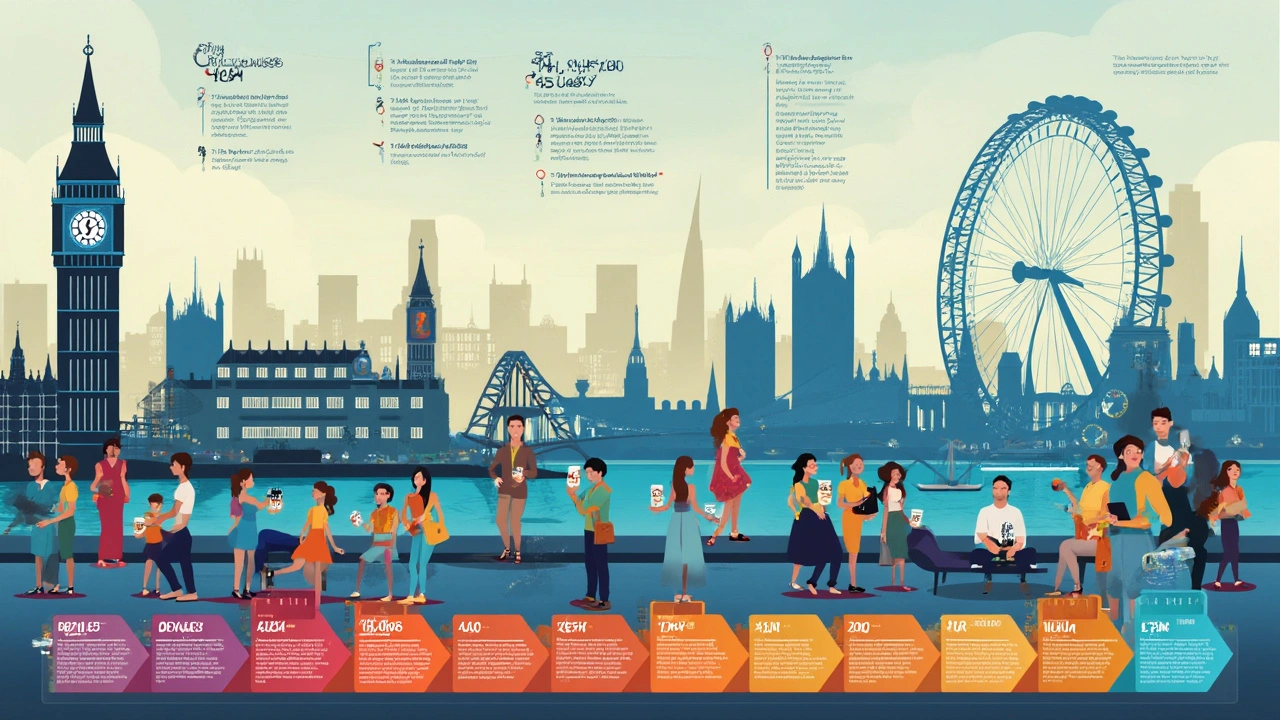
What Sets the Top Energy Drink Apart?
In the chock-full arena of energy drinks, a few contenders dance at the forefront, but there is a king of the hill—Red Bull. While that might not surprise many, it's the intricate cocktail of factors that solidify its top rank worldwide.
Market research suggests that brand recognition plays a significant role. Red Bull offers a consistent formula that consumers trust, making it a familiar choice in uncertain bustling grocery aisles. However, it's not only about caffeine and sugar. Important buzzwords like 'nootropic stacks' and 'electrolyte balance' also contribute. Red Bull's successful formula emanates from hitting the right caffeine count—80 mg per can—to give you that extra kick without sending you into jitters.
Nutrition and drink-friendly health trends have prompted other brands to jump on the zero-sugar and reduced-calorie bandwagon, but Red Bull manages to harness an enviable balance. Its balance between a moderate sugar content and efficacious caffeine, coupled with vitamins like B6, B12, niacin, and pantothenic acid, uphold its role as more than just a caffeine hit.
Moreover, Red Bull's marketing campaigns have effectively embedded the brand into the essence of adventure—associating itself with Formula 1, Air Racing, and cliff diving, creating a lifestyle image that resonates deeply with its target audience. It becomes not merely a drink but an experience and an attitude.
However, recognizing the reigning champ isn't to dismiss other notable mentions. Monster, Rockstar, and newer, niche brands like Celsius and Alani Nu have been making serious waves by focusing on flavor innovation, ingredient transparency, and customizable energy solutions.
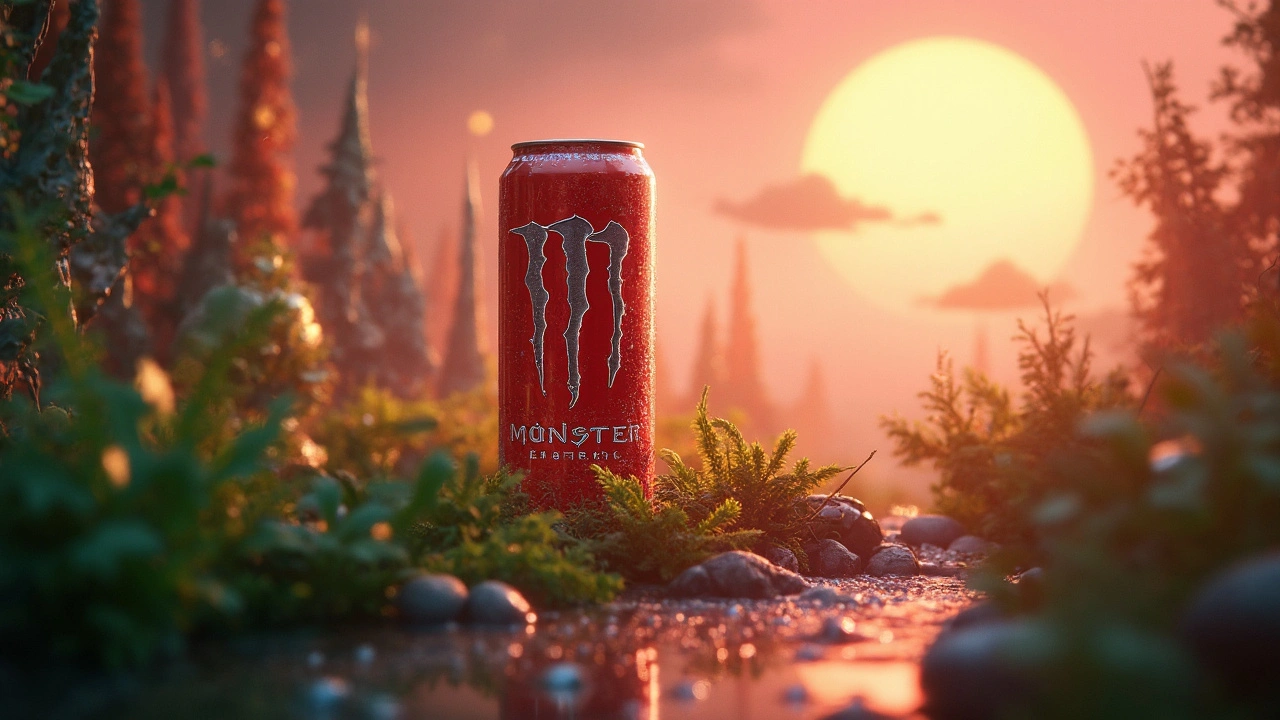
Tips for Choosing Your Go-To Energy Drink
With the myriad options floating in the market, it can be quite the task to choose which energy drink to stock in your fridge. So here are some actionable tips to power up your selection process:
- Know your caffeine limit: Not all energy drinks are created equal. Some may have double the caffeine found in a typical cup of coffee. Always check the caffeine content to avoid overstimulation.
- Monitor your sugar intake: While sugar-free options are aplenty, those with sugar can easily send your dietary plans off track if you're not vigilant, especially when consumed regularly.
- Prioritize ingredient lists: Look for drinks that list clear, recognizable ingredients. Avoid those chock-full of artificial unfamiliarities.
- Consider lifestyle compatibility: If you’re into sustainable and organic lifestyles, look for brands that align with your principles, offering clean labels and responsible sourcing.
- Adopt a trial-and-error approach: Explore different brands and flavors to find the one that suits your taste and functional needs best. You might be surprised by what ends up in your favorites list.
Ultimately, whether you grab a can of Red Bull or venture into trying something new, it's all about finding what fits into your lifestyle without compromising balance and health. Energize smart, stay informed, and enjoy the buzz!

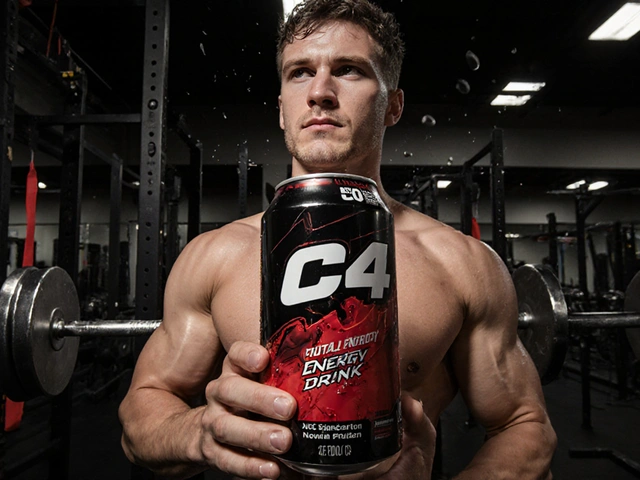
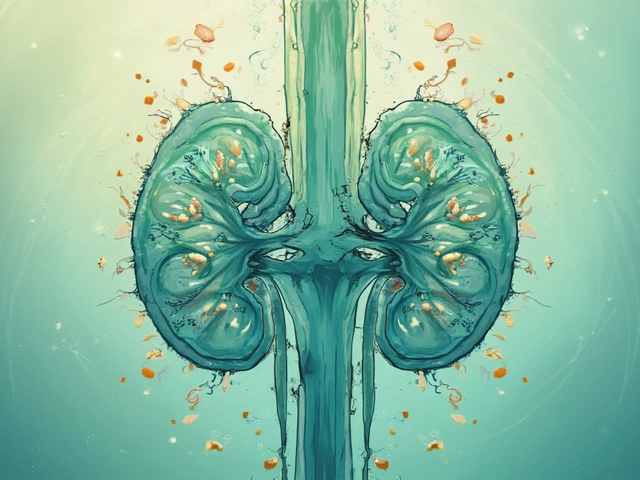

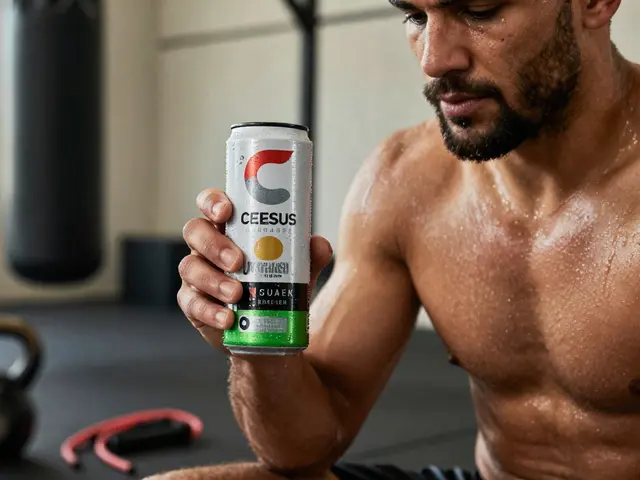
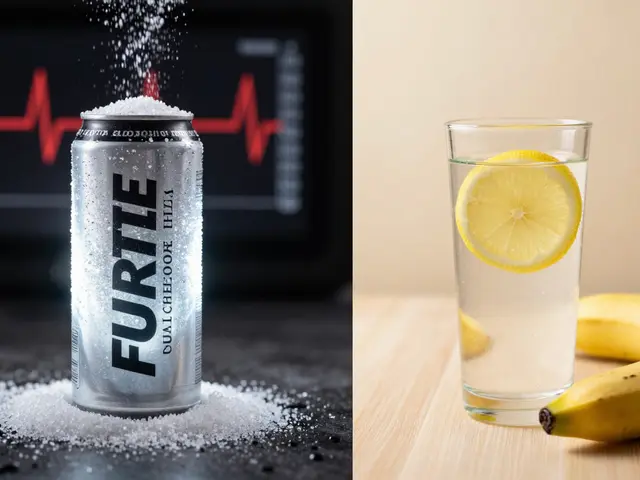
Comments (10)
Jason Townsend
18 Jul 2025
Look, nobody’s talking about the real reason why these energy drinks top the charts — the chemical cocktail in them is designed to make you hooked without you even noticing. It’s all part of a well-oiled marketing machine, pumping out flashy ads while keeping folks dependent on caffeine and sugar combos. This article misses the bigger picture, which is how these companies manipulate consumer behavior under the guise of 'energy' and 'liveliness.' Ever wonder why they never really highlight the crash after the buzz?
We should be questioning who’s really benefiting here — the consumer or the conglomerate profiting behind the scenes? The fact that these drinks keep evolving their formulas only to make people come back for more is pretty telling if you ask me. The market trends and consumer insights feel more like a scripted narrative rather than an honest deep dive. Be aware, not everything that shines with neon lights is gold.
Elmer Burgos
18 Jul 2025
Hmm, I actually think there’s more nuance here. Yes, these drinks have their downsides but for someone like me who struggles to stay awake during long shifts, they can be a practical solution. The market trends also show efforts to improve formulas, like adding natural ingredients instead of just sugar and chemicals. That’s a step in the right direction, right?
It’s important to balance skepticism with understanding that not all energy drinks are the same. The article seems to cover the evolution pretty well, pointing out consumer preferences and how companies adapt to them. What do you think? Does any brand stand out to you as less harmful or more natural?
Sara Escanciano
19 Jul 2025
This article is brushing past the public health disaster that energy drinks represent. We’re talking about products loaded with harmful substances, aggressively marketed to vulnerable groups including teens. Highlighting 'market trends' without condemning the exploitative practices is irresponsible, plain and simple.
There’s nothing admirable about chasing a dangerous caffeine fix. We should be focusing on long-term health, not glorifying a beverage that endangers cardiovascular health and causes dependency. Sometimes we have to call out this nonsense rather than hype it up as a lifestyle upgrade.
Jennifer Kaiser
20 Jul 2025
I think we have to approach this topic with a bit more empathy and critical thought. Calling energy drink consumers reckless ignores the complexities of why people turn to these drinks — stress, long work hours, lack of sleep, and social pressures all play a role. Rather than moralizing, we should advocate for better awareness and healthier alternatives.
This guide could be a great tool to educate readers on both the pros and cons, including how to enjoy energy drinks responsibly if they choose to. What about encouraging moderation and transparency from manufacturers? That might be the key rather than demonizing the entire category.
James Winter
21 Jul 2025
Look, in Canada we got options and our domestic products can actually compete with these global giants. But articles like this tend to overhype brands that don't necessarily respect health standards or local values. Why are we applauding whatever sells the most rather than what’s truly good for people and communities?
We need to be more critical of how these energy drinks fit into the bigger picture of our national health and culture. The global market trend is not always the trend that’s right for Canadians or anyone else, frankly. Local should matter more than global hype.
Aimee Quenneville
22 Jul 2025
Oh sure this guide makes everything sound so fancy and exciting but we all know most energy drinks taste like sugary battery acid with a splash of regret. The 'buzzing beverage industry' is basically a club for sleepless zombies chasing the next caffeine fix, right?
I give props if you manage to read the whole long-read without falling asleep or rage-quitting. But honestly, do we really need another energy drink crowned king every year? Just drink a coffee and call it a day, imho.
TIARA SUKMA UTAMA
23 Jul 2025
How about we just put all the hype aside and talk about what this energy drink is actually doing to people’s health and wallets? I am curious to know if this guide addresses the sugar content and the actual ingredients beyond marketing buzzwords.
Also, has anyone tried reducing their energy drink intake and noticed a real difference in energy levels or overall well-being? I’d love to hear personal experiences rather than just stats and trends.
Marissa Martin
1 Aug 2025
This kind of glorification is exactly why I stay away from energy drinks altogether. I know the risks but seeing them portrayed as a lifestyle choice is disturbing. There should be way more emphasis on health warnings and less on market performance.
Honestly, we don’t need more products that encourage dependency and masked exhaustion. If people want to live energized lives, they should invest in proper rest and nutrition instead of these commercial concoctions.
Dmitriy Fedoseff
12 Aug 2025
An interesting angle this article touches on is the evolution of energy drinks from simple caffeine sources to more complex formulas. Philosophically speaking, it reflects society’s impatience and desire for quick fixes in an increasingly fast-paced world.
But the existential cost here is often overlooked. Are we trading genuine vitality for temporary artificial stimulation? This drink might be the world’s top seller but that doesn’t necessarily mean it leads to genuine fulfillment or health.
In the end, it’s a reflection of our collective psyche — craving energy in a world that demands constant motion while often ignoring deeper well-being.
Antwan Holder
16 Aug 2025
I gotta say this energy drink culture is almost like a modern ritual — people chasing artificial sparks to transcend the banal humdrum of daily life. The dramatic irony is that in reaching for this pinnacle of 'energy,' we might be deepening our existential fatigue.
The article captures this commercial zenith but misses the poetic tragedy beneath. Every sip is a temporary escape, a carnival ride thrilling and exhausting simultaneously. We are trapped in a cycle of craving and fleeting rushes, which might be the true story behind the global preference.